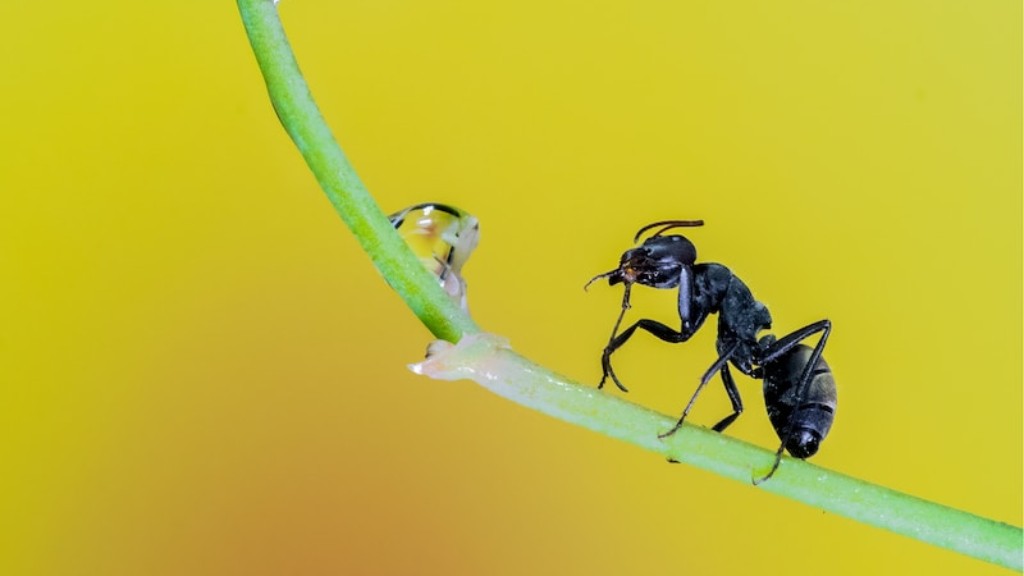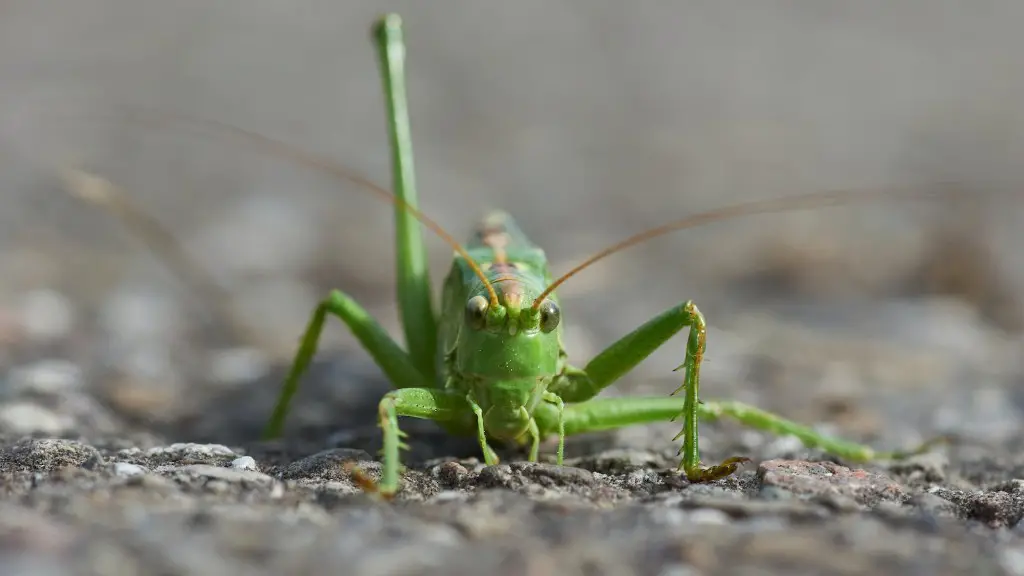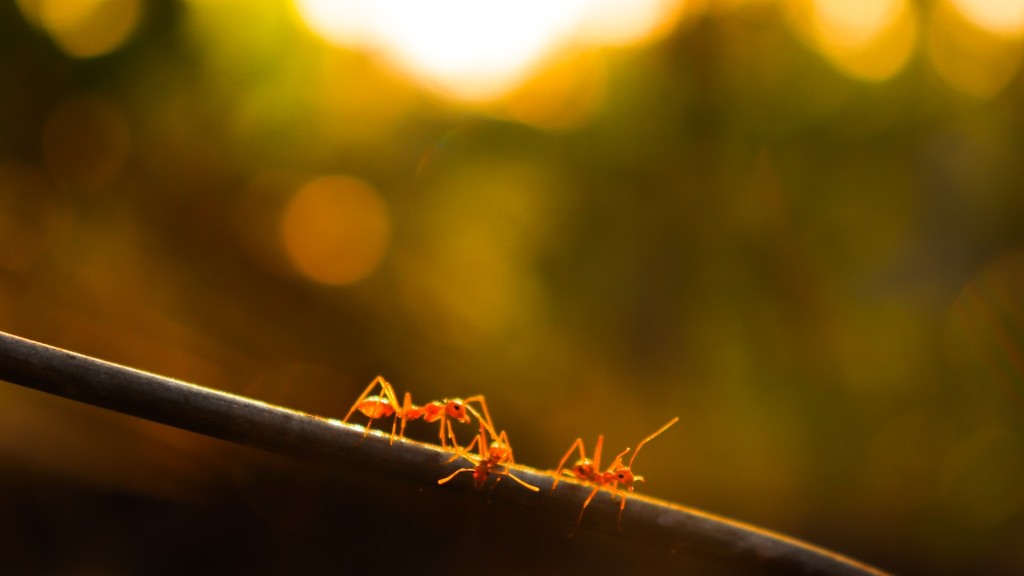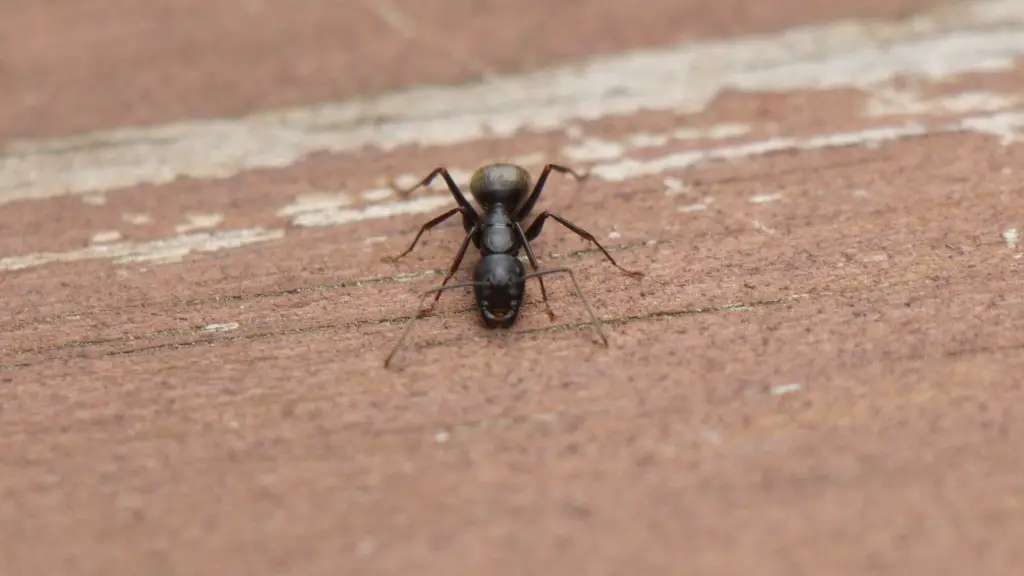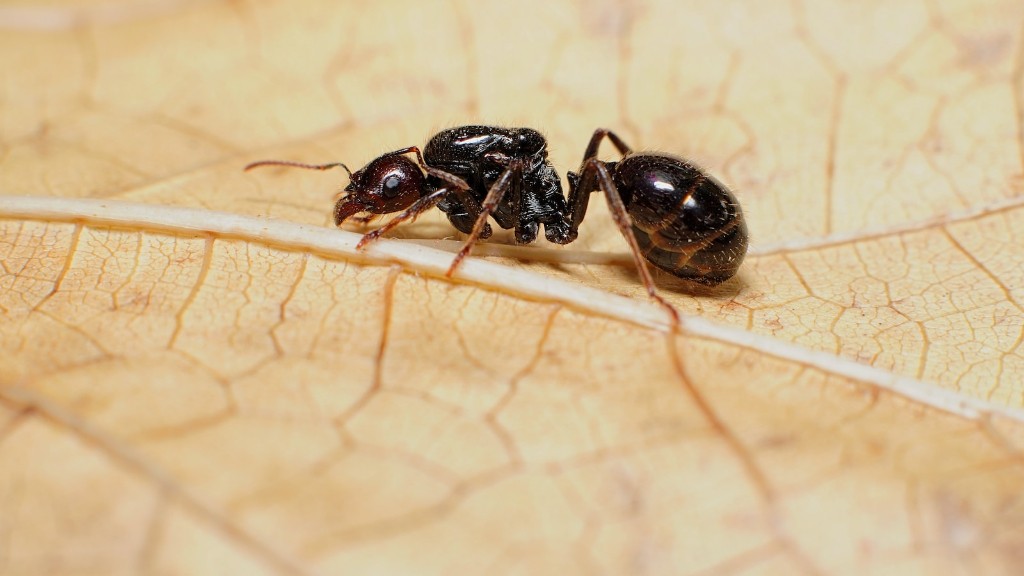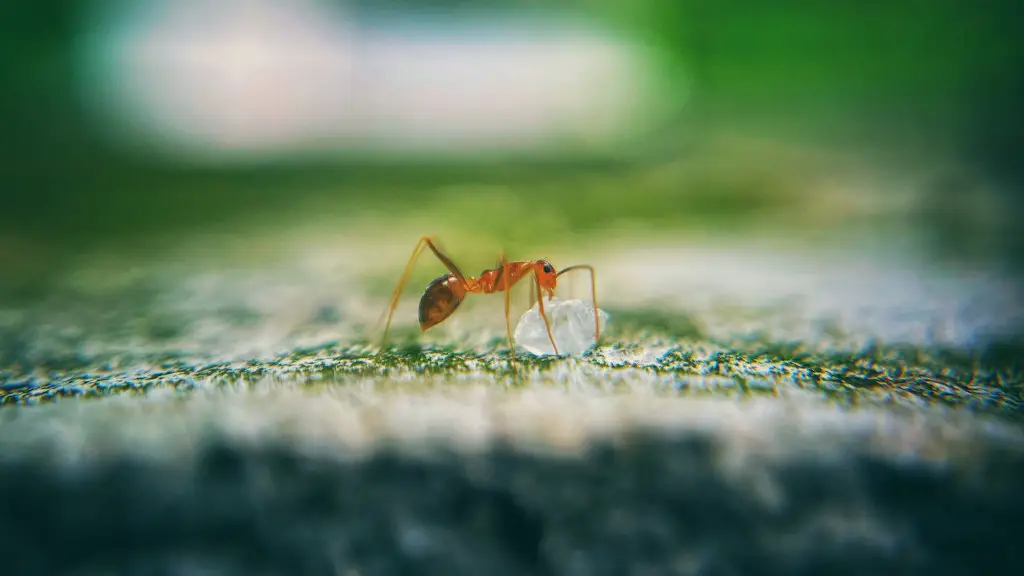Ants and Cold Temperature
When temperatures drop, ants often go into hiding. Ants are small insects that belong to the family Formicidae, of which there are approximately 12,000 known species. Like other insects, ants prefer warmer temperatures, but are able to survive cold weather as long as it’s not too severe. Although ants are able to withstand limited amounts of cold, they’re still more comfortable in temperatures higher than freezing.
Ants tend to live outside in nature, in colonies containing both worker ants and queen ants. In the winter months, some ants will stay in their colonies and others will migrate to warmer climates where temperatures are more favorable. Worker ants don’t migrate, because they don’t have the energy reserves. But the queen ants will often move to a warm place, such as an underground burrow, and wait out the cold season.
Although ants have the ability to survive colder temperatures, they do have some features that help them stay warm. For example, ants use their antennae to regulate their bodies, trapping heat around their bodies to stay warmer. Additionally, some species of ant will even secrete a waxy substance that helps to repel cold, windy conditions. Because of their small size, large groups of ants huddled together can generate enough heat to survive cold weather.
In addition to their natural adaptations, ants may also use human-made structures to find shelter from the cold. For example, ants might take refuge in the basement of a home or in the cracks of a driveway. Like most other insects, ants are attracted to warm, dark spaces, so providing them with a cozy place to hide away can mean the difference between life and death in cold weather.
When temperatures take an unexpected dip, ants may also seek out food sources that they’d normally avoid. Sweet and fatty food sources are especially attractive to ants when it’s cold outside, as the carbohydrates and fats provide a much-needed energy boost. Ants might also explore untapped areas of the home, such as the attic or basement. It’s important to be mindful of their presence, as ants can cause structural damage when in search of food or shelter.
Generally speaking, ants do not like cold weather. However, they are generally able to survive these temperatures and even thrive. When temperatures drop, ants may take shelter, seek out energy sources, or use their natural adaptations to brave the chilly conditions. Additionally, they may even search for warmth in human-made structures. With the right precautions and understanding of the environment, it’s possible to protect these insects while they brave the cold.
Ants in the Winter
When temperatures begin to drop, ants often start to look for warmer homes to take refuge in. They typically hide in cracks and crevices, including inside flower-pots, or beneath logs and stones. Some species, such as the carpenter ant, may even make homes inside walls and ceilings. In the winter, ants should not be exposed to temperatures lower than 48°F (8°C) for any extended period of time.
The winter months can be tough for ants, as the colony is unable to forage for food and the queen ant is unable to produce new workers. To make it through the winter, ant colonies will often consume their stored food sources, such as leaves, seeds and other plant material. In some cases, they may even resort to cannibalism in order to survive.
To better prepare themselves for winter, ants will sometimes modify their nests to stay warm. This could include packing mud or other insulation around their homes, covering the nest with debris or growing fungus on the walls of the nest. Through these adaptations, ants are able to survive cold temperatures and make it to springtime.
When the weather warms up, ants will often become much more active. This is because they are able to travel far and wide looking for food, and the queen can start laying eggs to create new workers. By understanding the behavior of ants in cold weather, it’s possible to protect them from harm and help them get through the winter.
Sugar Ants and Cold Weather
Sugar ants are one of the most common species of ant found in the United States. The species is also known as the little black ant, and is active all year round. Although they generally prefer warm weather, they can tolerate cold temperatures. Therefore, it’s likely that you may find sugar ants active in winter as well.
Sugar ants are attracted to sweet foods such as sugary beverages, honey or candy. When temperatures drop, this attraction only increases, and it’s not unheard of for colonies of sugar ants to be found indoors in the winter months. Although they may not cause any large-scale damage, it is important to protect the home from sugar ants, as they can contaminate food sources and spread bacteria.
In most cases, sugar ants are easily repelled with insecticides or natural remedies such as peppermint oil or vinegar. For homeowners dealing with sugar ant infestations, understanding how to deal with ants in the winter can be a great way to protect the home and make sure that the ants are unable to spread.
Myths About Cold Weather and Ants
There are many myths surrounding ants and their behavior in the winter. One of the most common is that ants hibernate in winter. In reality, ants are not true hibernators; instead, they simply slow down their metabolic rate, reducing the amount of energy they need in order to survive the cold weather. This allows them to survive while conserving energy.
Another myth is that ants cannot survive cold temperatures, but this is not true. Most ants are actually able to survive temperatures as low as 20°F (-7°C) for short periods of time. This means that for most of the winter, ants will be able to survive in their colonies with the help of their natural adaptations.
Though ants are able to survive cold temperatures, temperatures do have an effect on their behavior. When it’s cold, ants will often become less active and will be less likely to search for food and other resources. Additionally, if temperatures drop too low, ants may become completely dormant and will only wake up when the weather warms again.
Protecting Ants from Cold Weather
Although ants have natural adaptations that allow them to survive cold temperatures, it is still important to take steps to protect them during the winter. If the temperature drops too low for too long, ants could succumb to the cold, so it’s best to take precautions to ensure their safety.
If there is an ant colony near your home, make sure to provide them with a warm place to hide away from the cold. This could be in the form of a cozy hideaway, or even just a pile of dry leaves or hay. Additionally, try to reduce pesticide use as this could harm the ants and cause them to die.
It’s also important to avoid taking too much food away from the ants. As temperatures drop, ants will often take food sources that they wouldn’t normally take, such as sugary beverages and sweets. Although it’s important to keep these items away, it’s also important to make sure that the ants are still able to get enough food to survive the winter.
By taking these precautions and understanding the behavior of ants in cold weather, it’s possible to protect them from harm and even help them to thrive. Although ants don’t like the cold, with the right care, they’ll be able to survive the winter and carry on with their lives.
Ants and Hot Weather
During the summer months, ants are typically much more active than in the winter. Ants are most active when temperatures are between 65°F (18°C) and 86°F (30°C), and the worker ants will spend their time foraging for food and resources. The heat also allows the queen ant to start producing larvae, taking advantage of the warm temperatures.
It’s important to be mindful of ants in the summer months, as they can be highly attracted to food sources and other resources found within the home. As the summer season encourages more outdoor activity, it’s likely that food items may be taken outdoors, increasing the chances of attracting ants. To prevent an infestation, it is important to take extra caution with food sources and be mindful of ant activity.
Along with food sources, ants have also been known to take refuge in the home when it’s hot outside. If there is an ant infestation, it’s important to take the necessary steps to protect both the home and the ants from harm. Insecticides can be used to get rid of ants, however, it is important to be aware of the potential risks to the environment before using them.
Although ants may be seen as a nuisance in the summertime, it is important to be mindful of their presence. Like other insects, ants are vital to the environment, and the ecosystem would be significantly altered without their contributions. By taking the necessary precautions and understanding the behavior of ants, it’s possible to protect them while still keeping the home safe.
Ants and Humidity
Ants often prefer humid climates, as the moisture helps them to regulate their body temperature. Most species of ant are not able to withstand dry, arid conditions and will often become dormant during times of drought. But in humid environments, they can retain moisture and survive even in high temperatures.
Humidity can help to keep ants active, but can also make it difficult for them to find food. When it’s humid, ants will often find food sources in places that are wet, such as puddles or near plants or flowers. Additionally, because humidity can also help to break down food sources, ants might also feed on rotting food items or decaying plant matter.
In the winter, the presence of humidity can drastically affect ant behavior. Whilst it may help the ants to stay active, the cold temperatures will usually take precedence, and the ants will search for warm shelter rather than food. As such, it’s important to be aware of the humidity levels when trying to protect ants from the cold.
Humidity and temperature both play an important role in the survival of ants. By understanding the behavior and environmental needs of these insects, it’s possible to keep them protected and ensure their safety throughout the year.
